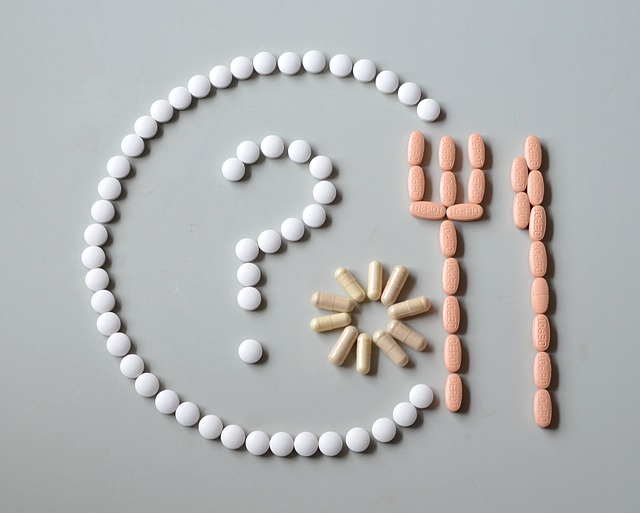
Prenatal vitamins have been a ritualistic form of prenatal care since the 1970s, when some pharmaceutical companies began adding folic acid to their multivitamin regimen. The more medical science researched the vitamins and nutrients that appeared most relevant to fetal development and healthy babies, the more the contents of prenatal vitamins were adapted and augmented. In the meantime, these vitamins have been patently recommended for pregnant women as well as women who are trying to conceive a baby.
Now, however, research findings show prenatal vitamins may not be as “essential” as we have been led to believe. In fact, the research shows that some supplements found in prenatal vitamins may be actually be detrimental instead.
Do Prenatal Vitamins Do More Harm Than Good?
In the early part of July, the journal Drug and Therapeutics Bulletin released its findings after a review of dozens of clinical trials done to test the efficacy – or lack thereof – of certain prenatal vitamins. The published study found:
Some vitamins may have a harmful effect on fetal development
Perhaps one of the most alarming findings is that supplementation of Vitamin A seemed to be correlated with a disturbance in fetal development, which can lead to birth defects or miscarriage.
Certain Vitamins have ZERO effect on the prevention of premature birth, low birth weight, and stillbirth
The researchers found the both Vitamin E and Vitamin C supplements seem to have zero effect on premature birth rates or the numbers of babies stillborn or born with low birth weights.
Some vitamins make things more uncomfortable for mamas-to-be
Then there are supplements, like iron, that can cause gastric irritation, diarrhea or constipation, which make things more uncomfortable for pregnant women. Instead, the researchers found it’s better to screen mothers for anemia and prescribe iron on an as-needed basis.
Other vitamins are beneficial for fetal development
One glaringly obvious finding was the recommended doses of Folic Acid are important for healthy fetal development. A review of the previous studies found that supplementation with any folate compared with no folate prevented the occurrence of neural tube defects (NTDs), most specifically spina bifida and anencephaly. As such, the doctors recommend women take 400μg of folic acid daily once they begin trying to conceive and through the first 12-weeks of pregnancy.
Vitamin D, in moderate doses, is also a beneficial supplement, particularly for women who live in areas where there is more limited exposure to sunlight, the best means of getting a healthy dose of Vitamin D.
A Well-Rounded Diet is the Best Means of Getting the Nutrients Your Baby Needs
It will be interesting to see what impact, if any, this has on doctor recommendations for prenatal supplementation as well as the development of improved prenatal vitamin formulas. It may be that we move towards a more personalized approach to supplementation, whereby patients would be advised to take a customized list of supplements based on their diet, lifestyle and a predisposition for certain birth defects.
In the meantime, it’s no surprise that you are what you eat. We’re fortunately to live in an era where supplements are available as needed, but evidence shows that a blanketed approach to multivitamins may not be the healthiest thing after all.
If you know you want to be a mother someday, the best thing you can do is to get your body healthy for baby by eating a healthy and well-balanced diet.
- Eat whole foods, the fresher the better.
- Try to avoid food products grown/raised using pesticides, herbicides, hormones or antibiotics.
- Switch to whole-grains
- Substitute fresh fruit and vegetables in lieu of processed snacks
- Try to avoid sweetened beverages and grab a water or tea instead
- Minimize the amount of caffeine you consume once you find out your pregnant
- Quit smoking
- Drink in moderation and give alcohol up completely during pregnancy
For our parting words, we’ll leave you with a direct quotation from the authors of the “Vitamin supplementation in pregnancy” article:
We found no evidence to recommend that all pregnant women should take prenatal multi-nutrient supplements beyond the nationally advised folic acid and vitamin D supplements, generic versions of which can be purchased relatively inexpensively. The primary focus should be on promoting a healthy diet and improving the use of folic acid supplements, which have a poor uptake, particularly among those from lower income families.
For most women who are planning to become pregnant or who are pregnant, complex multivitamin and mineral preparations promoted for use during pregnancy are unlikely to be needed and are an unnecessary expense. The marketing of such products does not appear to be supported by evidence of improvement in child or maternal outcomes. Pregnant women may be vulnerable to messages about giving their baby the best start in life, regardless of cost, and be unaware that the only supplements recommended for all women during pregnancy are folic acid and vitamin D, which are available at relatively low cost.
Trying to get pregnant? Take this study to your OB or fertility and start a conversation. Feel you’ve been trying to get pregnant for longer than it should take? Contact us here at RRC and schedule a conversation. We make it a point to be current on the most recent published fertility research so we can do our best to introduce parents to their own, healthy newborn babies.
image: condesign at pixabay.com
 Patient Portal
Patient Portal